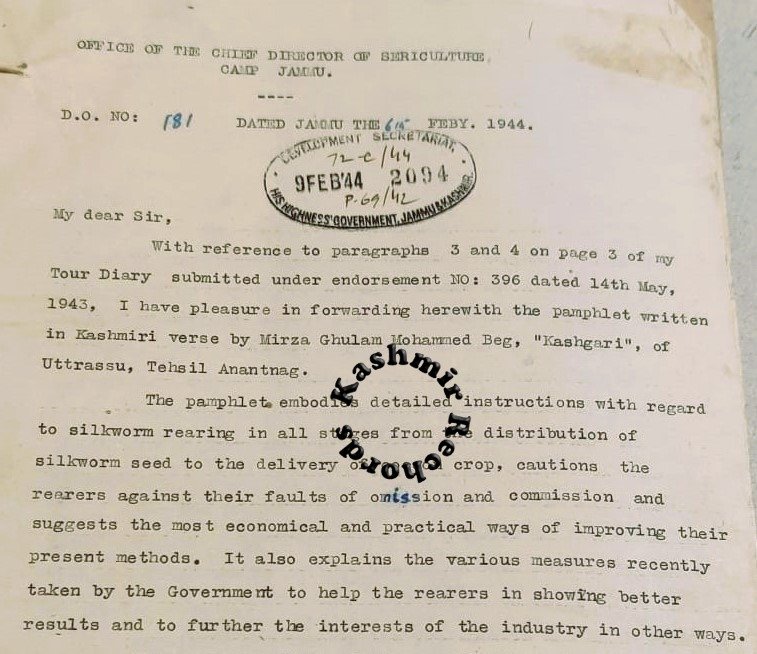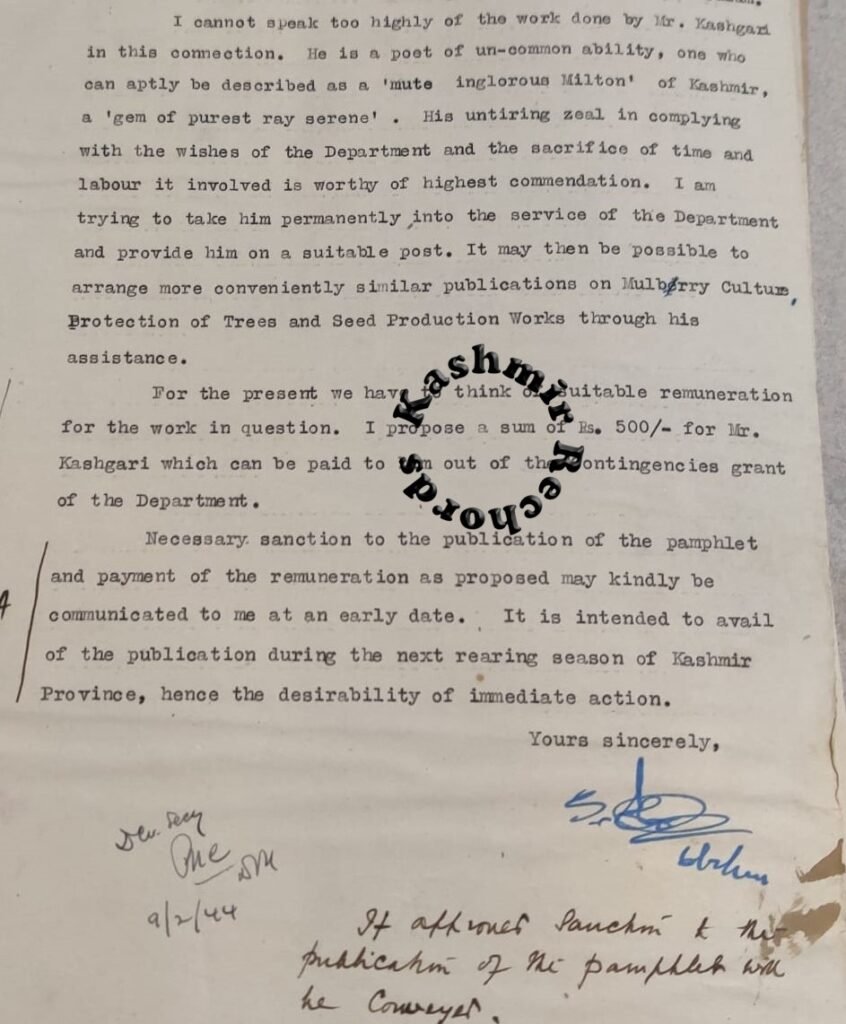Today, Kashgari’s name and contributions are little more than whispers in Kashmir’s rich cultural history. While his contemporaries are celebrated as cultural icons, Kashgari’s story remains an enigmatic fragment. The irony lies in the fact that, even as his verse once educated and inspired, the poet himself has faded into obscurity, his life and work buried under the passage of time.
By: Dr. Rajesh Bhat
Amid the poetic luminaries of pre-independence, the name of Mirza Ghulam Mohammed Beg `Kashgari’ from Utrasoo, Anantnag, Kashmir lingers like a faint echo—a “mute inglorious Milton” of his time. Borrowing Thomas Gray’s phrase, Kashgari’s story embodies the poignant reality of a genius uncelebrated and largely forgotten thereafter. His verses, rich in creativity and practical wisdom, reflect a life devoted to art and service, yet his contributions have faded into obscurity.
A Poet of Quiet Brilliance
While his contemporaries like Mehjoor, Zinda Kaul, Abdul Ahad Zargar and Dina Nath Nadim achieved lasting fame, Kashgari’s extraordinary talent went unacknowledged by history. Yet, his poetic works carried a unique blend of literary finesse and functional purpose. His most notable creation, Rehnumai Kiram Kashi, written in 1943 for the Sericulture Department, stands as a testament to his exceptional abilities.
This poetic guide, crafted to educate farmers on silkworm rearing, exemplifies how Kashgari transformed mundane agricultural instructions into lyrical verses that were easy to remember and recite. It was poetry with a purpose—designed to weave art into everyday life, much like the silken threads he wrote about.
The Irony of Recognition
Kashgari’s skill did not go unnoticed during his time. The Chief Director of Sericulture, J&K Government, struck by the uniqueness of his talent and terming him “Mute Inglorious Milton” of Kashmir, awarded him ₹500—then a substantial sum—and advocated for his work’s inclusion in primary education. Yet, despite these accolades, Kashgari remained an ephemeral figure in Kashmir’s literary and cultural history. Unlike his contemporaries, whose fame continues to shine, Kashgari’s contributions were undervalued and ultimately overlooked.
This neglect is deeply ironic. Kashgari had not only mastered the art of verse but also demonstrated an innovative approach to using poetry for social and economic development—a rare achievement. Despite these merits, he was relegated to anonymity, his brilliance buried like a hidden gem, much as Gray lamented of the rural poets in his Elegy Written in a Country Churchyard.


The Forgotten Legacy
What makes Kashgari’s story particularly tragic is the lack of effort to preserve his work. Beyond Rehnumai Kiram Kashi, little is known about his life or his other writings, if they exist. The honorarium he received came with the condition of copyright transfer, a legal formality that perhaps symbolized the undervaluation of his legacy. Unlike the silken threads that endure as a symbol of Kashmir’s heritage, Kashgari’s literary threads have all but disappeared.


A Call to Remember
Mirza Ghulam Mohammed Beg Kashgari’s life invites reflection on the fleeting nature of fame and the uneven ways history remembers its heroes. Kashmir Rechords urges its readers to join in the effort to revive Kashgari’s legacy. If any of his works, memories or records survive, their recovery could serve as a tribute to this unsung genius—a poet who spoke in silken verses but whose voice remains unheard in the chronicles of Kashmir’s cultural history.
Let us ensure that Kashgari’s silken words do not vanish into the oblivion of time.

